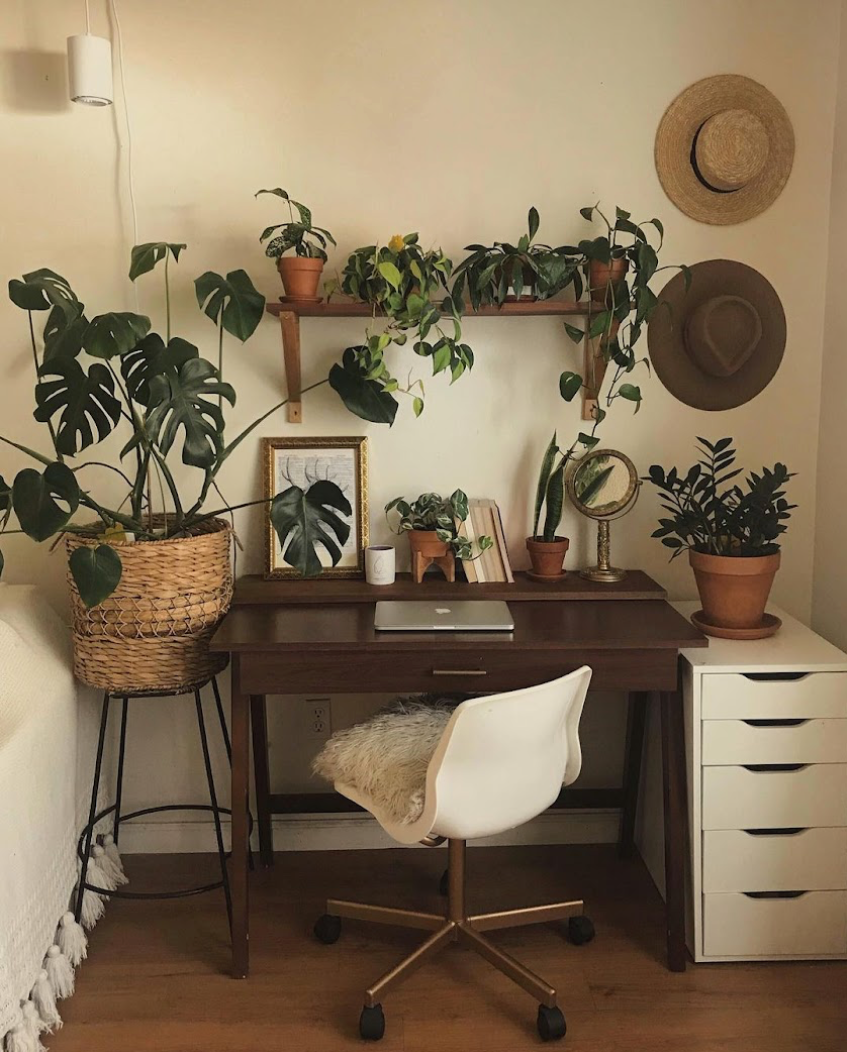
Table of Contents
You know what's awesome? Having fresh, juicy fruit right at your fingertips all year round! If that sounds like a dream come true, why not try growing some fruit trees indoors? Not only will they make your home more beautiful, but you'll also get to harvest your very own fruit! But, hey, don't just go ahead and stick a seed in a pot—growing indoor fruit trees needs a bit more TLC. Check out these top tips for growing the yummiest indoor fruit trees that’ll make you proud.
The Best Fruit Trees To Grow Indoors

photo by Ryan Baker
All fruit trees are unique, so when you're choosing one to grow indoors, think about the space you've got, how much light it'll get, and which fruit you're craving the most. Some awesome indoor fruit trees are citrus trees, dwarf apple trees, and fig trees. Citrus trees like lemons and oranges need a good amount of sunlight and well-draining potting soil. Dwarf apple trees are perfect for tight spaces and don't need as much sunlight as other fruit trees. Fig trees do great in containers and just need a moderate amount of sunlight. Do some research to see if your home meets the conditions that your tree of choice will be happy in, and adjust your space accordingly. You might have to make a couple adjustments like adding a humidifier or making sure it’s not placed near any vents.
Indoor Fruit Tree Light Requirements

Light is super important for indoor fruit trees if you want them to grow and produce fruit. Most fruit trees need at least six hours of sunlight a day, so put your trees near a window with loads of natural light. If your home's a bit dim, don't worry—we've got grow-lights! Soltech's powerful indoor plant lights act as a natural sunlight replacement that provides your houseplants and trees with the much-needed light to thrive.
How To Water Fruit Trees

Too much water? Too little water? It can be tricky, but getting the right balance is crucial for your indoor fruit trees to grow. Most fruit trees need well-draining soil and regular watering. How often you water will depend on the fruit tree you've got, the pot size, and your home's temperature and humidity. A good rule of thumb is to water your fruit tree when the top inch of soil feels dry. Just be careful not to over-water, or you could end up with root rot and other issues.
Fertilizing Indoor Fruit Trees

Photo By Antony Trivet
Your indoor fruit trees need the right nutrients to grow and produce fruit, so don't forget to fertilize them. You can choose from organic and synthetic fertilizers. Organic fertilizers like compost or worm castings are great if you want to avoid chemicals. Synthetic fertilizers are easy to use and can give your trees the specific nutrients they might be missing. Just follow the instructions on the package and don't overdo it, or you could damage their roots.
Keep Pests and Diseases in Check

Indoor fruit trees can still get attacked by indoor plant pests and diseases. You might run into spider mites, mealybugs, or scale insects. To deal with these pests, use insecticidal soap or neem oil. Diseases like root rot or powdery mildew can also be a problem. To avoid these, make sure you're not over-watering your trees and keep them away from extreme temperatures. If your trees do get sick, remove any affected leaves or branches and treat them with the right fungicide treatment.
How To Prune Your Indoor Trees

To keep your indoor fruit trees healthy and productive, you'll need to prune and shape them. Pruning indoor plants helps maintain a manageable size and encourages new growth and better fruit production. Regularly remove any dead or damaged branches, as well as any branches that are growing too close together or crossing each other. It's usually best to prune your fruit trees in late winter or early spring, before new growth starts.
Does Your Tree Need Pollinating To Grow Fruit?

Photo By Suraj Mali
Some indoor fruit trees, like citrus trees, are self-pollinating and don't need any help to produce fruit. However, others, like apple trees, might need a little assistance. Since there might not be enough insects indoors to help with pollination, you can give nature a hand by using a soft brush or cotton swab to gently transfer pollen from one flower to another.
How Long Does It Take To Grow Fruit Indoors?

Photo By Engin Akyurt
Growing fruit trees indoors requires patience. It can take several years for a fruit tree to mature enough to produce fruit. Don't be discouraged if your tree doesn't bear fruit right away—it's just taking its time to get established and grow strong. In the meantime, enjoy the beautiful foliage and the sense of accomplishment that comes from nurturing a living thing.
Sharing The Love

Once you've mastered the art of growing fruit trees indoors, why not share the joy with friends and family? Fruit trees make great gifts and can be a thoughtful way to encourage others to embrace indoor gardening. You can also share your knowledge and experiences, helping others get started on their own indoor fruit tree journey.
Growing indoor fruit trees is an enjoyable and rewarding hobby that can bring a touch of nature and fresh, delicious fruit into your home. With the right care and a little patience, you'll be well on your way to creating your very own indoor orchard. Happy growing!



